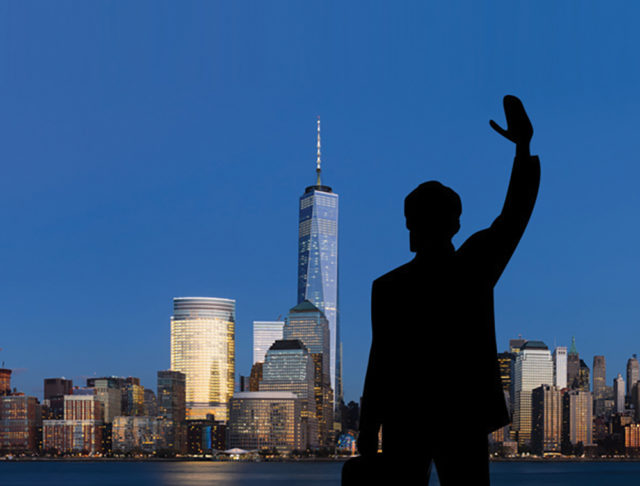Politics on social media does not always reflect conditions on the ground. The latest such example is in Woodhaven, where Assemblywoman Jenifer Rajkumar was on the receiving end of negative Twitter posts last week from bike advocates and leftist activists over her proposal to expand the number of parking spots. “Parking is so limited here that some residents sleep overnight in their cars waiting for a parking spot to open,” wrote her chief of staff Vjola Isufaj. “The Assemblywoman proposed creating angled parking on 98th Street to open up spaces. She also proposed turning unnecessary median striping on Woodhaven Boulevard into parking space.”
In addition, Rajkumar also spoke of a privately-owned park space owned by a co-op complex whose board supports its conversion to public parking. The confusion of the Forest Park Co-op receiving additional parking and fear that nearby Forest Park would be invaded by cars set off a flurry of protest tweets and a small group picketing outside Rajkumar’s district office.
The protesters spoke about the dangers that cars pose to public safety and the environment, contributing to traffic congestion, slowing down buses, and competing with bikes and pedestrians for space. They also spoke about protecting land on the edge of Forest Park from becoming parking spaces. Such arguments seem noble, but they do not reflect the lives of Rajkumar’s constituents, and she shared their comments on her Twitter account.
“I fully support AM Rajkumar’s push to create more parking in the neighborhood. Driving around for an hour or more w/o finding parking makes daily life difficult,” wrote Woodhaven resident Walter Chaluisant. “I deeply appreciate her leadership.”
The freshman lawmaker won her seat in 2020 with the majority in a three-way primary that ousted incumbent Mike Miller. At the time, the Stanford-educated lawyer and professor was regarded as a rising star and history maker – the first woman of South Asian descent elected to office in Queens. In her public choice between DSA activists and civic associations in her district, Rajkumar recognized her district’s voters and their priorities.
“I will never abandon common sense just to fit the politics of the moment or to appease a mob of extremists on twitter. I’m here to serve my constituents & improve the lives of real working-class people...most of whom are not tweeting right now,” she tweeted.
Back in 2015, there was a transportation battle in Kew Gardens Hills concerning proposed bus lanes on Main Street that would have taken away dozens of parking spots along a busy commercial strip in the heart of the neighborhood. This publication partnered with Assemblyman Mike Simanowitz, Councilman Rory Lancman, the Kew Gardens Hills Civic Association, and local synagogues in a successful effort that saved the parking spots. Following a campaign of letters, petitions, and a public meeting, the New York City Department of Transportation concluded that, unlike the downtowns of Flushing and Jamaica, the commercial strip in Kew Gardens Hills does not need bus lanes because it is not congested.
Given the choice between a bike, public transportation, and a car, I would take the first two choices when it makes sense. But when weather conditions do not favor walking or biking, and when public transportation is not available, too slow, too expensive, or too distant from my destination, the car is necessary. Likewise, when there are large families with long shopping lists, urgent appointments and personal emergencies, these often require a personal vehicle. Many of the anti-car activists did not grow up in Queens and do not understand the needs of families that have many children, or parents who take care of their elders and children at the same time.
Perhaps there are cities where car usage and ownership decreased after parking posts were eliminated in favor of buses and bikes, but I cannot imagine middle-class families in Queens and further east living without cars. My family’s first home was in Rego Park, where a bike lane on Queens Boulevard and new multi-unit apartments are contributing to a parking crunch. Nearly three decades ago, there were times when my father would circle around for nearly an hour to find a spot near our home, or walk 15 minutes to his car on the other side of the tracks.
I want to believe that the battle for the bus lane on Main Street is a thing of the past, but as long as there are well-meaning activists who believe that saving the planet means the elimination of personal vehicles, we should be as vigilant as the residents of Woodhaven in defending our streets.
By Sergey Kadinsky
















